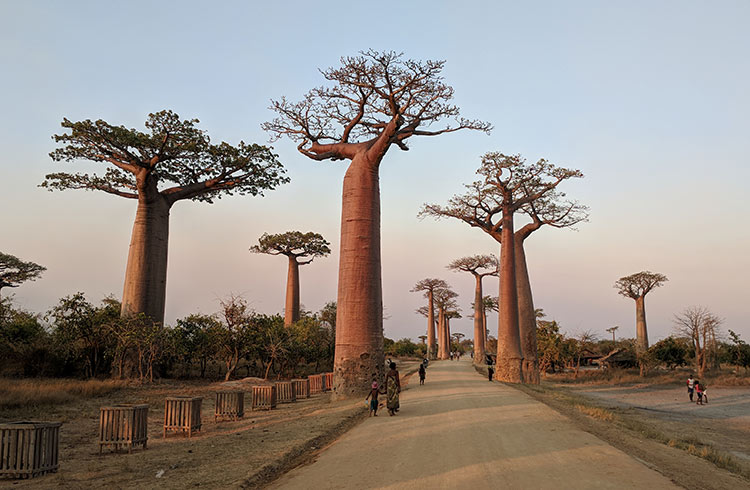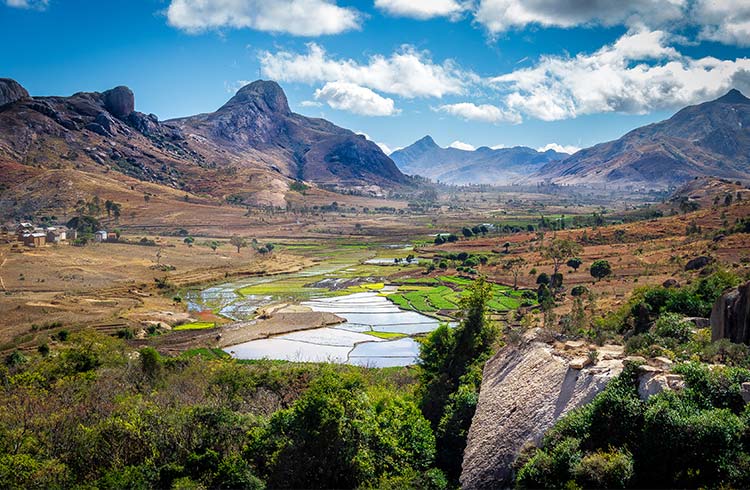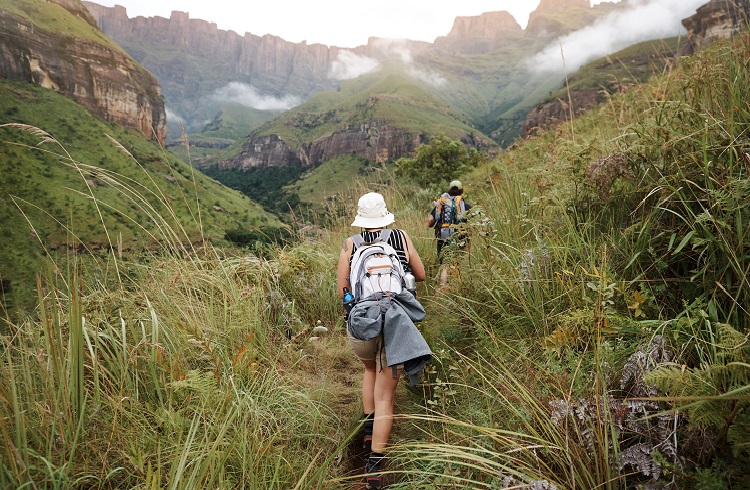Laws and Customs to Know Before You Go to Madagascar
Avoid offending any locals or breaking any laws in Madagascar by following these tips on customs and etiquette.
 Photo © Getty Images/Kieran Stone
Photo © Getty Images/Kieran Stone
If you're planning a trip to Madagascar, you're in for one of the most incredible, wild adventures of your life. Madagascar has something for adventure travelers or visitors who are looking for a relaxing getaway. No matter what you're doing here, you'll need to know a bit about the culture, laws and etiquette before you go.
This is a country inhabited by Indonesian and African settlers, but also a former French colony with a colorful history of influences from Arabs, Indians and Jewish immigrants. These influences have melded together to create a unique, culturally diverse destination.
But the fascinating mix of cultures also makes it necessary for travelers to familiarize themselves with the local laws and customs. Here's what you need to know.
Fady and taboos
Madagascar is not only known for its unique, one-of-kind plant and animal species, but is also home to many unique customs and beliefs. Each part of the island is populated by a different cultural group, and each has their own distinct customs.
Madagascar is regulated by numerous local taboos, known as "Fady". Because of the diverse cultural make-up, the Fady vary from region to region, so you should educate yourself on any local taboos before traveling to a new region so you can remain respectful and avoid offending anyone.
Fady are not based on religious beliefs, but are attributed to Malagasy ancestors. As a result, the local people exhibit extreme respect and are devout in their adherence to these taboos.
Some Fady concern forbidden foods (pork, lemur, turtle) while others prohibit wearing certain colored clothing, or forbid bathing in rivers or lakes.
Observance of Fady is mostly limited to rural areas and therefore, travelers staying in major towns are not likely to run into any problems. Larger towns such as Antananarivo do observe some Fady, but are more likely to excuse foreigners who don't adhere to their taboos. It is essential to respect all Fady and avoid violating local customs in Madagascar.
Customs on Madagascar
There are several customs that are universal on the island and should be respected while you are traveling here.
- Respect all elders and authority figures in Madagascar – this custom is very important
- When addressing anyone older than you or in a position of authority, such as military, police or government officials, use the word "tompoko" (toom-pook), which is similar to "sir/madame?" in English
- If you are visiting a remote village, it is tradition to first meet with the head of the tribe or group prior to interacting or conducting business with other members.
Photo etiquette
The Malagasy people don't approve of visitors taking photos without permission. As breathtakingly beautiful and fascinating as the surroundings may seem, be sure to ask for permission prior to snapping your pictures. Be especially careful to never take photos of a tomb without permission.
Remember: Ask first, capture the photo later.
Local currency in Madagascar
The local currency is the Ariary, but many locals still think in terms of the previous currency, the Malagasy Franc (FMG). It is important to clarify whether the price is Ariary or FMG (one Ariary is equal to five FMG).
Madagascar is primarily a cash-driven economy. Some higher-end establishments may accept credit cards, but usually only Visa cards. Most shops and restaurants are cash only, so be sure to plan accordingly and come with cash.
What you can and can't export from Madagascar
- Never attempt to export gemstones or other precious materials. The Madagascar government recently imposed restrictions on the export of precious gems so before purchasing any gemstones, seek clarification of the applicable laws
- If you are planning to export any precious materials, you should obtain a certificate of authenticity as well as a certificate that allows for exportation
- Non-residents may take up to one kilogram of precious and semi-precious stones out of the country, as long as proper receipts are produced
- It is illegal to import or export food items (including fruit), protected plants and animals
- There is also a restriction on exporting vanilla with a limit of 100 grams
- In July 2010, the National Environment Office placed a ban on the export of all crocodile products.
Sex crimes in Madagascar
Madagascar recently introduced laws targeting prostitution, which prohibits consorting with female prostitutes. Avoid engaging with any sex workers in Madagascar. In addition, a campaign against sexual abuse of underage children (under 18 years) is strictly enforced.
Common diversity
As contrasting as the population of this beautiful country is, the geography and activities travelers can do on the island are even more diverse.
Tour sugarcane plantations with a taste or two from local rum distilleries, or explore the rainforest filled with rare and unique wildlife. Witness the migration of humpback whales, bask on a quiet, tranquil beach or observe several species of lemurs and other amazing animals as you trek through the many nature trails.
This is not a lackluster vacation destination by any means but one that will always be remembered as an experience of a lifetime.
With a little knowledge, and a lot of respect for customs and laws of Madagascar's people, you will no doubt have an incredible, safe time exploring this one-of-a-kind island.
Related articles
Simple and flexible travel insurance
You can buy at home or while traveling, and claim online from anywhere in the world. With 150+ adventure activities covered and 24/7 emergency assistance.
Get a quote


7 Comments
To export gemstones or specimens of minerals it is necessary to go to the Ministry of Mines in Antananarivo to get the required export permits. You should have a knowledgeable local obtain the permits for you. Allow a day for this. You will have to pay a tax based on the value of the material.
You are not done yet. At the Ivato airport you will need to deal with the Malagasy customs service. They will inspect your permits and then request a "gift". Be firm and tell them that you have no gifts. After a couple of minutes they will give up and take your bags to the plane. This advice is based on my experience in Madagascar in June of 2016.
I found so much helpfully info and thi webssite is amazing and very help full. Thank you and this really helped me with knowing what to do and what not to do for when i go to madagascar.
Is Amber with an insect in considered a gemstone?
amazing!
I'm american who moved to Antananarivo 3 years. I have truly enjoyed meeting friends here. I'm now in a nice relationshipe and settled down with a nice Malagasy. If you are open to new experiences life will never be boring here.
Hope and my prayers that the hurricane now in February 2022 won`t cause much damage to people and the country, would like to get in contact with Joseph who posted about 15 months ago, would like to live there for a while and explore.
If Madagascar companies have paid you for building wrk and wrk had to be done within so many days and you have fullfill that agreement but not yet paid all the percentage of tax agreed. Can they hold you there..Agreed was 5% and they are £23,000 short can they keep you there. They are knowing full well if not paid before they leave a big fine will be added..Is this true.. Thank you for advice.. Tricia Bright